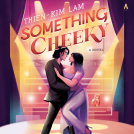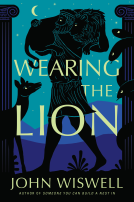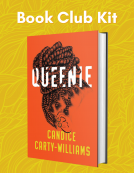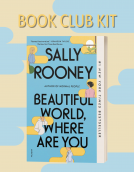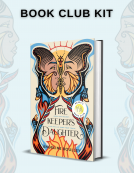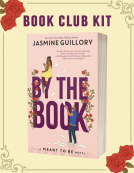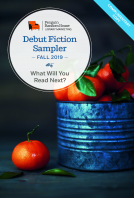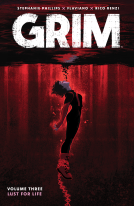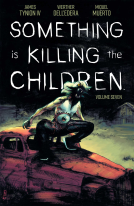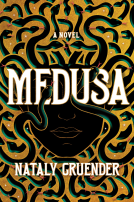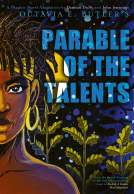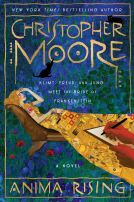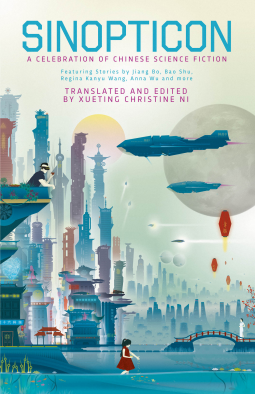
Sinopticon 2021
A Celebration of Chinese Science Fiction
by Nian Yu; Zhao HaiHong; Regina Kanyu Wang; Wang JinKang; Tang Fei; Anna Wu; Han Song; Jiang Bo; Bao Shu; A Que; Gu Shi; Ma Boyong
This title was previously available on NetGalley and is now archived.
Send NetGalley books directly to your Kindle or Kindle app
1
To read on a Kindle or Kindle app, please add kindle@netgalley.com as an approved email address to receive files in your Amazon account. Click here for step-by-step instructions.
2
Also find your Kindle email address within your Amazon account, and enter it here.
Pub Date Nov 09 2021 | Archive Date Nov 02 2021
Rebellion | Solaris
Talking about this book? Use #Sinopticon #NetGalley. More hashtag tips!
Description
This celebration of Chinese Science Fiction — thirteen stories, all translated for the first time into English — represents a unique exploration of the nation’s speculative fiction from the late 20th century onwards, curated and translated by critically acclaimed writer and essayist Xueting Christine Ni.
From the renowned Jiang Bo’s ‘Starship: Library' to Regina Kanyu Wang’s ‘The Tide of Moon City', and Anna Wu’s ‘Meisje met de Parel', this is a collection for all fans of great fiction.
Award winners, bestsellers, screenwriters, playwrights, philosophers, university lecturers and computer programmers, these thirteen writers represent the breadth of Chinese SF, from new to old: Gu Shi, Han Song, Hao Jingfang, Nian Yu, Wang Jinkang, Zhao Haihong, Tang Fei, Ma Boyong, Anna Wu, A Que, Bao Shu, Regina Kanyu Wang and Jiang Bo.
Advance Praise
"The masterful result validates Xueting's endeavor―and will only whet readers' appetite for more translations." -- Publishers Weekly, starred review
"The masterful result validates Xueting's endeavor―and will only whet readers' appetite for more translations." -- Publishers Weekly, starred review
Available Editions
| EDITION | Other Format |
| ISBN | 9781781088524 |
| PRICE | $14.99 (USD) |
| PAGES | 608 |
Featured Reviews
Thank you to the publisher and NetGalley for this ARC in exchange for an honest review!
First off, as a reader of Chinese descent (but who can't read Chinese), I am so happy to see an anthology of Chinese authors being translated into English. I've read and enjoyed Ken Liu's works. In fact, Invisible Planets, his first collection of translated sci-fi stories, is one of my favorite short story collections. I was excited to get approved to read this book, and I am proud to support the publication of works that have been translated from Chinese into English. Thank you again to the publisher for this opportunity!
Sinopicon 2021 is a bold and daring anthology of sci-fi stories that have been translated from Chinese into English. This has rarely been done before, and I applaud the publisher for taking this risk. The stories themselves are amazing, and to think that they would have never reached English-reading audiences if not for this book! The themes of the stories revolve around time travel, space travel, and robots. Although these themes are familiar to Western science fiction fans, there is still a unique Chinese-ness to the stories, as exemplified through the names of the characters, among other things.
Here is an excerpt from one of my favorite stories in the collection, Tombs of the Universe by Han Song:
"When I was ten, my father decided that I was fit for space travel. That year, the whole family went to Orion on a flight with Interstellar Travel. On our way back, the ship broke down, and we had to stop off on Mars to catch another flight back to Earth.
We landed near the Martian north pole. With everyone feeling anxious and apprehensive, the flight attendant arranged for us to get into spacesuits and take a stroll outside. Our landing point was surrounded by ruins from the old Human Era, announced the captain; remnants of the First Age of Space Exploration. I remember very clearly: we had stopped in front of a section of a metal wall several kilometres long, and happened upon some unexpected things.
We now know that those things were called gravestones, but back then, I was simply transfixed by their awesome grandeur."
Imagine somebody going to another planet on vacation, instead of going to Disney World! The possibilities for the future are endless, and this book presents infinite possibilities to the reader. Overall, Sinopticon 2021 is a groundbreaking anthology of science fiction that will appeal to readers of Ken Liu's anthologies Invisible Planets and Broken Stars. If you're intrigued by the excerpt above or if you're a fan of the science fiction genre, I highly recommend that you check out this book when it comes out in November!
Thank you to NetGalley and Rebellion Publishing for granting me access to this book's ARC.
A collection of short stories ranging from a zombie apocalypse to the Nanjing (Nanking) massacre to complete and utter outer space, Sinopticon 2021 presents a stunningly-written array of Chinese Sci-Fi that was enlightening and refreshing to read.
First of all, Xueting Christine Ni has done an excellent job of translating so many Chinese stories into such immersive, eloquent prose. I found her added thoughts for each story fascinating, and they really helped me to think about the themes each author was trying to get across. It truly seems as if she has put her heart into translating each story for English speakers as faithfully as possible, whilst still finding ways to help us understand the nuances of Chinese culture that one may not pick up on as a non-native. She has striven to include something for everyone within this single book.
Almost every story has a meaning or hidden message (as is often the case with Sci-Fi). The social commentary and philosophy was very engaging, and it was interesting to move from one story to another knowing that the next would present its case in a wildly different manner to the last. However, I felt that some were... well, in some cases too long, and in other cases too lacking in plot for me to be all that interested (and for this reason I am only rating the collection 4 stars rather than 5).
I felt as though the stories got better as I got further along - or perhaps I was just getting used to the format and ideas behind each one. My absolute favourite story was 'Flower of the Other Shore', which I raced through. A zombie apocalypse story told from the perspective of one of the zombies? Yes please! This story, like several others in the book, was one of the like that I've never read before. It was so well written in every single way, and is possibly my favourite short story of all time.
For Sci-Fi lovers (and people just getting into Sci-Fi!), this collection is well worth a read. It presents a range of unique and thought-provoking stories, all clever in their own ways. Plus, the cover is beautiful!
This is a brilliant and fascinating set of short stories. Xueting Ni has lovingly translated this collection into British English - which makes a nice change from having everything in standard American! As well as translating, each story gets a "translator's commentary". A set of notes which gives a little insight into the interpretation process - as well as some context on the author. There's also some great explaining of some of the symbolism lost in translation. For example, the characters 比喆 and 赫林 are star-crossed lovers on twin worlds - something which doesn't come off in their Romanised forms.
The stories themselves are excellent. Sure, there are a couple of recycled plots - but told from a Chinese perspective. Is that perspective so different from the West? Just like my review of Black Sci-Fi Short Stories, it is sometimes hard to pick out what makes the stories uniquely Chinese. If these were in a mixed anthology, would you know they were all from authors from one region?
A few of the stories have an undercurrent of nationalism to them which feels very old fashioned. It's unusual to find a modern story which revels in the innate superiority of the English, for example.
That said, I never thought I'd feel sympathy for a zombie!
My 中文 isn't good enough to rate the quality of the translation - although I'd love a simultaneous version - so I can't comment on that. But the book raises the interesting question of how you translate a story about time travel from a language which uses tenses quite differently to English.
Most importantly, each story is fun! With a good mix of lengths, styles, and genres, there really is something for every type of sci-fi fan here.
Thanks to NetGalley for the review copy. The book will be published in late 2021.
 S T, Reviewer
S T, Reviewer
The collection "Sinopticon 2021" edited and translated by Xueting Christine Ni contains 13 science fiction tales originally published in China between 1991 and 2021, and recently translated by the editor into British English. I picked up this collection out of an interest in experiencing and better understanding Chinese science fiction. Each story is followed by a brief set of notes from the editor that to explain cultural background as needed. Likewise, to keep the flavor of the original stories, certain words are transliterated as Pinyin in roman letters and marked with footnotes to indicate meaning where necessary.
Since each story is as unique as its author, here are a few thoughts on each:
"The Last Save":
What would happen if technology and quantum physics let people pick "save-points" like video games have?
The premise is an excellent approach to good science fiction. The story is interesting and very readable. As a Western reader, a romance where both of the main characters become estranged until the end of their lives makes me feel rather sad. However, the editor explains this in the notes for one of the other stories that "yearning separation is the bread and butter of Chinese romance".
"Tombs of the Universe"
As humanity expands into the universe, the need for both tombs and ritual surrounding death will be unavoidable. Although each country and culture treats these issues with some variation, there are probably many more similarities. These similarities and differences influences my interpretation of this story about the scholars that investigate the history of "graves and tombs in space", and the culture of the diligent workers in the "Space Emergency And Rescue Corp"s Third Division which has the sole duty of "engineering and construction of graves, tombs, and burial sites." However, in the end, it turns out to be a romance where after a brief time together, the protagonist looks forward to being together again with his love in the afterlife. I have to assume that this too is an example of yearning separation in Chinese romance.
"Qiankun and Alex"
What happens when a logical and quite capable super AI is tasked with learning from a preschooler? Perhaps a mission to send 1300 micro spacecraft to answer fundamental questions about dark matter might not be the first thing that comes to most people, but it is just one of the results in this short story. I leave the other heartwarming results for readers to look forward to.
"Cat's Chance in Hell"
This story is solid scifi military fiction in which the use of technology described makes the reader think twice. What is humanity? What is the definition of a human? What responsibility does humanity have for the humane treatment of nearly identical to human constructs? (Hint: the main character is yearning to be reunited with his family...)
"The Return of Adam"
The use of stasis to enable space travel to and from a distant location is a common trope in science fiction. And, the cultural differences on return to Earth provide fertile ground for story telling. This, coupled with rapid artificial development of human intelligence make for a thought provoking story. Unfortunately, I still don't quite know what to think about the goal of the expedition being to explore the "RX Galaxy, ten light years away." Perhaps, I should say it makes me think about U.S. pulp scifi from the 40's and 50's?
"Rendezvous: 1937"
One of the uses of time travel in Western science fiction is to somehow prevent Hitler from committing the Holocaust. In this story we see time travel technology being used to document the criminal military aggression in Nanjin in 1937 while simultaneously being used by the other side to attempt to prevent this documentation. Of course, the two time travelers on opposite sides fall for each other only to be separated by death. I guess this is the eternal version of yearning separation in romance.
"The Heart of the Museum"
An alien that can simultaneously see present, past, and future who looks after a child that will create a museum to humanity that outlasts the earth. This story felt both artistic and philosophical.
"The Great Migration"
Taking place on Mars while attempting to travel back to the Earth seems like an excellent setting for a science fiction story. This story absolutely delivers for those who like their science fiction to be slightly dystopian. For this story I would suggest reading the editor's notes first, and for U.S. readers to imagine what Thanksgiving might be like if EVERYONE traveled back to their traditional home.... even if they happen to be living off-planet... (So this story also has yearning for reuniting with family.) This was perhaps my second favorite story in the collection.
"Meisje met de Parel"
A time traveling AI interacting with a to-be-famous child in 1937....
"Flowers of the Other Shore"
The zombie apocalypse with a humanizing twist. The author nicely humanizes zombies, hints at a tantalizing potential cure, and demonstrates that some zombies can much more human than some humans. Oh, and the zombie guy and human gal also find themselves in a complicated romantic relationship that naturally can not work out. (More romantically yearning separation...)
"The Absolution Experiment"
What happens when a truly heinous and violent criminal is offered a way to escape punishment that actually turns out to be a punishment worthy of the Outer Limits? (Oh, one of the key characters is motivated by romantic separation by death from his wife and child...)
"The Tide of Moon City"
Two scholars living on separate binary planets have a chance to meet at a conference after corresponding for several years. I can not say more about the plot here, but the editor note for this story explains the concept of "yearning separation ... of Chinese romance". The plot includes draconian governments, personal betrayal, and of course romantic separation. This was in my top three favorite stories in this collection.
"Starship: Library"
As a space opera that spans eons, this was my favorite. I don't think this story had direct romantic separation. Although I suppose one could make a case that the robot librarian was estranged from the human race and looking for a chance to again serve humanity....
Overall, these were entertaining stories. It was refreshing to read stories that do not follow the naive story arc I might have predicted, since, as a science fiction fan, I like reading about new ideas and ways of thinking. Finally, I would like to offer my appreciation to the publisher, editor/translator, and authors for kindly providing an electronic review copy of this book.
This was the first time I've read a translated story and I have to say that I very much enjoyed this collection of traditional stories. It was a refreshing change to the usual. At the end of each story a "translators commentary" was provided in order to provide some insight into the interpretation that was taken by the translator. I found this to be very interesting and a nice way to immediately compare your own personal interpretation to what it was intended to be. With regards to the stories themselves, they were very intriguing and as I stated before I very much enjoyed them. It does make me wonder though what I would think of the untranslated version and how similar they are. All in all, I would definitely reread some of the stories and this has also opened my eyes to the possibility of looking for other translated stories to read.
Sinopticon 2021 is a fascinating new look into a rich and vibrant world of speculative fiction that remains largely unfamiliar to Anglophone readers. I hadn't read a great deal of Chinese SF before this collection, but I'll be actively seeking it out from now on.
The 13 stories in this collection engage both with tropes and notes familiar to readers of Western SF and with ideas perhaps more specific to Chinese culture, literature, and society. The result is a set of stories that both feel familiar enough to immediately engage an Anglophone SF reader and fresh enough to not be completely predictable.
As in any short story collection, particularly one featuring work by multiple authors, some of these stories grabbed me more than others. Two particular highlights for me were "Flowers of the Other Shore"--a poignant and ultimately hopeful love story set against the backdrop of zombie apocalypse--and "Starship: Library", a wonderfully touching meditation on artificial intelligence, purpose, life, death, and the eternal value of books, reading, and learning. None of the stories were uninteresting, though, and thanks to all of them being translated by the same person--Xueting Christine Ni--the collection feels satisfyingly cohesive.
In all, I thoroughly enjoyed the experience of reading Sinopticon 2021, and I'll be looking out for more translated work by these and other Chinese SF authors. I would highly recommend this book to any fan of short science fiction.
I received a free e-ARC of this collection via NetGalley in exchange for an honest review.
First of all, thank you so much to Rebellion and NetGalley for this ARC!
This anthology compiles thirteen sci-fi short stories from thirteen sci-fi writers in China. They come from many different backgrounds and represent the width of Chinese SF. These stories are translated for the first time in British English.
I decided to read this collection because I am actually interested in reading stories other than western sci-fi stories because I think it is a new experience to read short stories from the eyes of Chinese SF. It is actually really hard for me to give a rating for this anthology. This is because there are many factors that I need to consider before giving this rating. For the translation, in my opinion, the editor has translated them well because I managed to get the stories that authors try to convey quite well. I am also really grateful for the author’s note and footnotes at the end of each story. From there, I get to learn a little bit more about the background of the author and meanings/background of some words or phrases used in the story. For the stories, there are some of them that are not really to my liking but I think that is inevitable in a short story collection but I still have my favourite one. My favourite short story is the last short story in the collection which is Starship: Library by Jiang Bo. The message that I got from this story is that knowledge is the essence of humanity. Truly saving the best for the last one. For any sci-fi lovers out there, I highly recommend you to read this collection. This collection will be published on 9 November 2021.
 Reviewer 811157
Reviewer 811157
I thoroughly enjoyed everything about the reading experience of Sinopticon 2021. This collection contains 13 short stories from a wide range of modern Chinese science fiction authors. As with any short story collection, there were some I loved and some that I didn't like as much. That being said, this is one of the few collections where there hasn't been a story I've hated. Individually, none of the stories rated lower than 3 stars for me and over half of them were 4 stars or above. Some of my favorites include: "Rendevous: 1937" - not very sci-fi but a harrowing look at the Nanjing Massacre- and "The Absolution Experiment" - super short story where awful things happen to an awful person and packed such a punch. I also really enjoyed "The Return of Adam" and "The Great Migration" because they called to mind some visceral reminiscing of my time living and teaching in China.
I loved the variety of stories presented here. Sci-fi concepts ranged from space travel, virtual reality, AI and robots, time travel, zombie plague, and more. I truly believe that this collection will have something for everybody to enjoy. I also really appreciated Ni Xueting (Christine)'s commentary after each story shedding light on the story's author, why she chose that story, some of her thought process while translating and some of the cultural context of the story. Some additional information about the cultural and linguistic aspects of the story could be found in footnotes throughout the stories and I found those to be very helpful.
All in all, I would recommend this to anyone who likes sci-fi or anthologies or anyone who has an interest in translated literature. I will absolutely be picking up my own copy when it is released and have a couple authors bookmarked to look for future translations of their work!
 Reviewer 418715
Reviewer 418715
Xueting brings to readers an impressive collection of short stories representing Chinese speculative fiction from the late 20th Century onwards. Each story has earned its place in the anthology and demonstrates the range of themes found in Kehuan (the Chinese term for science fiction).
An introductory essay places Chinese science fiction in a general context. Xueting explains that Chinese SF has been influenced by Western science fiction, but also contains elements intrinsic to Chinese identity, culture, and history. For each piece, there are notes about the author and the particular story. The notes discuss everything from translation considerations to events or cultural customs that might be unfamiliar to Western readers.
The result is varied and entertaining; slice-of-life stories mingle with whimsical galactic adventures and post-apocalyptic black comedy. Han Song's "Tombs of the Universe," for example, shows how humanity treats the remains of the dead in the age of cosmic exploration. In "The Last Save," by Gu Shi, technology gives people the option for rebooting their life, and unlimited memory allows them to correct any mistake by going back in time and making different choices.
There are many great stories here, but A Que's "Flowers of the Other Shore" is probably my favorite. Imagine a story about the zombie apocalypse told from the perspective of a zombie who, despite his urge to hurt people, has no desire to do so. It is excellent in every way. The writing style, the idea, the execution, the ending. I absolutely loved it.
Another story I want to mention, Starship: Library by Jjang Bo, tackles the themes of artificial intelligence, the purpose of life and death, and the importance of learning. It somehow spoke to me on a deeply personal level.
In its entirety, Sinopticon is a stunning collection. With such a wide variety of themes and tones, everyone should find something for themselves. Sinopticon is a must-read for readers who want to discover what science fiction looks like from an Asian perspective. Heck, it'll be a treat for any fan of sci-fi short stories! Highly, highly recommended.
 Vivian K, Reviewer
Vivian K, Reviewer
A must have for any Sci-Fi reader. This collection of short stories promises till the beginning diversity and stays true to that promise. The authors belong to younger and older generations, they are male and female, new and established. The stories also vary from hard science fiction to mild, from libraries that' travel beyond the milky way to. zombie apocalypse. They have in common a sence of optimism, even if everything seems doomed.
 Reece C, Reviewer
Reece C, Reviewer
During my time progressing through the stories, the ideas discussed in the introduction permeated my mind. Was Chinese science fiction common knowledge? My first introduction to such a genre, as a second generation Chinese myself, was the concept of this very novel, just months back. I asked many of my friends and family - many of them avid readers - but not one of them knew or even believed such a thing existed.
I felt no disconnect due to the translation done. In fact, throughout the stories, Xueting Christine Ni's choice to keep many of the Chinese words in pinyin helped preserve the original cultural flavour. Each short story was immersive and their ideas refreshingly original. Reading through, the stories made me wish to read on and on, further from this book to explore the revealed world of Chinese fiction.
 Reviewer 832068
Reviewer 832068
"Don't remember. It doesn't matter who we were. We're all just walking corpses. For us, memory is just another kind of virus, one even more deadly and that would torment us more than the Hunger. Forgetting who we are is a defence mechanism for Stiffs. Don't resist this defence: don't remember".
Sinopticon has taught me that I don't hate science fiction writing, I just hate poorly written sci-fi books. This anthology of translated short stories delivered the most wonderful, spine-tingling experience featuring topics including AI, space travel, time travel and zombie apocalypses. Anything you could have hoped for and then some, complete with Chinese language and culture insights.
Just like any short story anthology, the collection fell short for a handful of tales for issues such as too much 'male gaze', however, the translators notes at the end of each novel identified the weaknesses openly and explained why in spite of these, the story was chosen. Understanding the process and recognising the strengths regardless, helped me to think outside of my own rating box.
There were two stories that really hit me. "Flowers of the Other Shore" is the first story I've ever read from the infected individuals point of view and it left me on the edge of my seat, filled with great philosophy and a refreshing change of pace. Additionally, the unexpected plot twist in "The Tide of Moon City" simultaneously made my stomach drop and gave me goosebumps. To have such strong emotions, from a short story no less, is the sign of a well written, well translated story,
Xueting has curated an incredible collection to either allow readers to segue into sci-fi, or continue their love of sci-fi tales. Marvellous.
Thank you to NetGalley for the ARC.
Readers who liked this book also liked:
Octavia E. Butler; Damian Duffy
Comics, Graphic Novels, Manga, Multicultural Interest, Sci Fi & Fantasy

